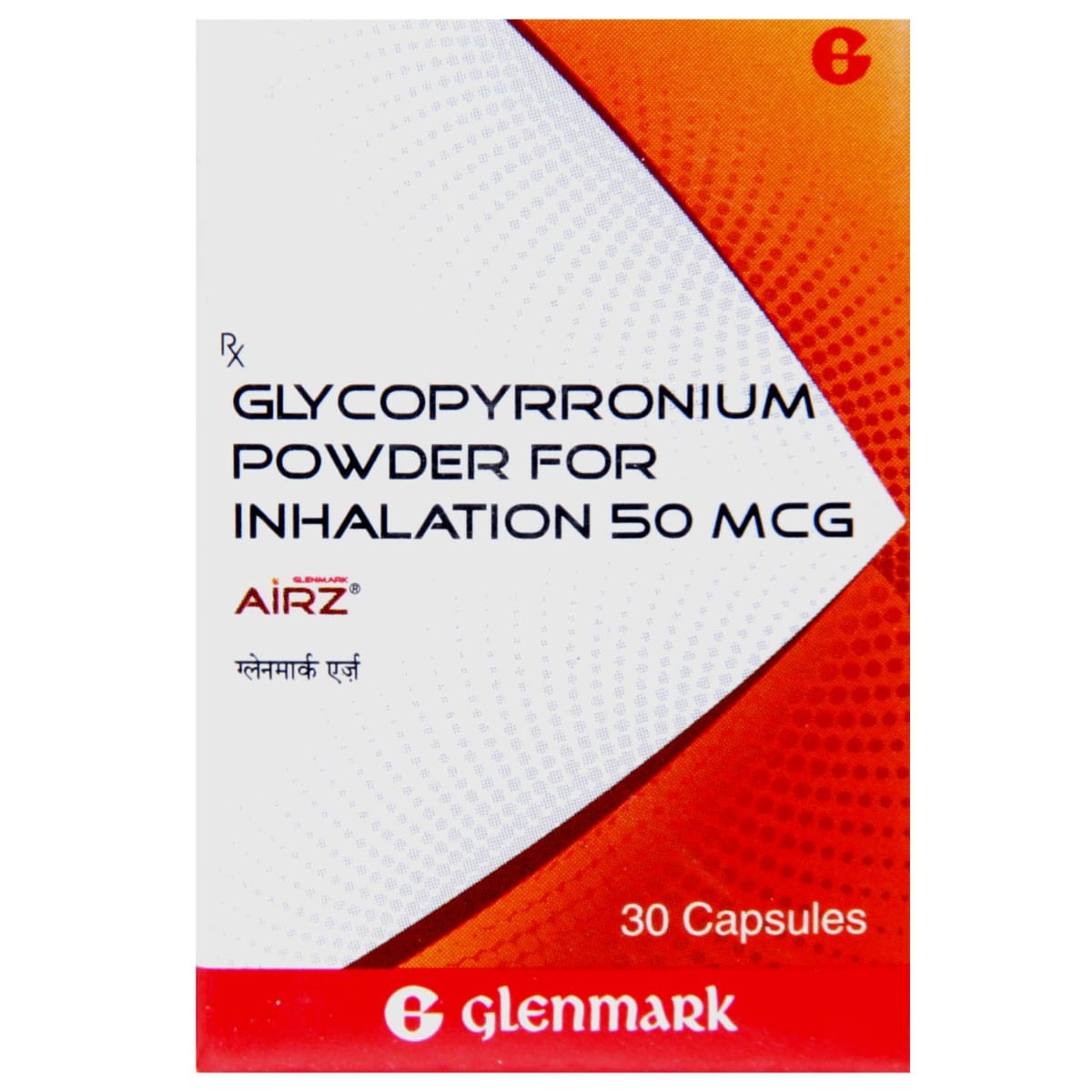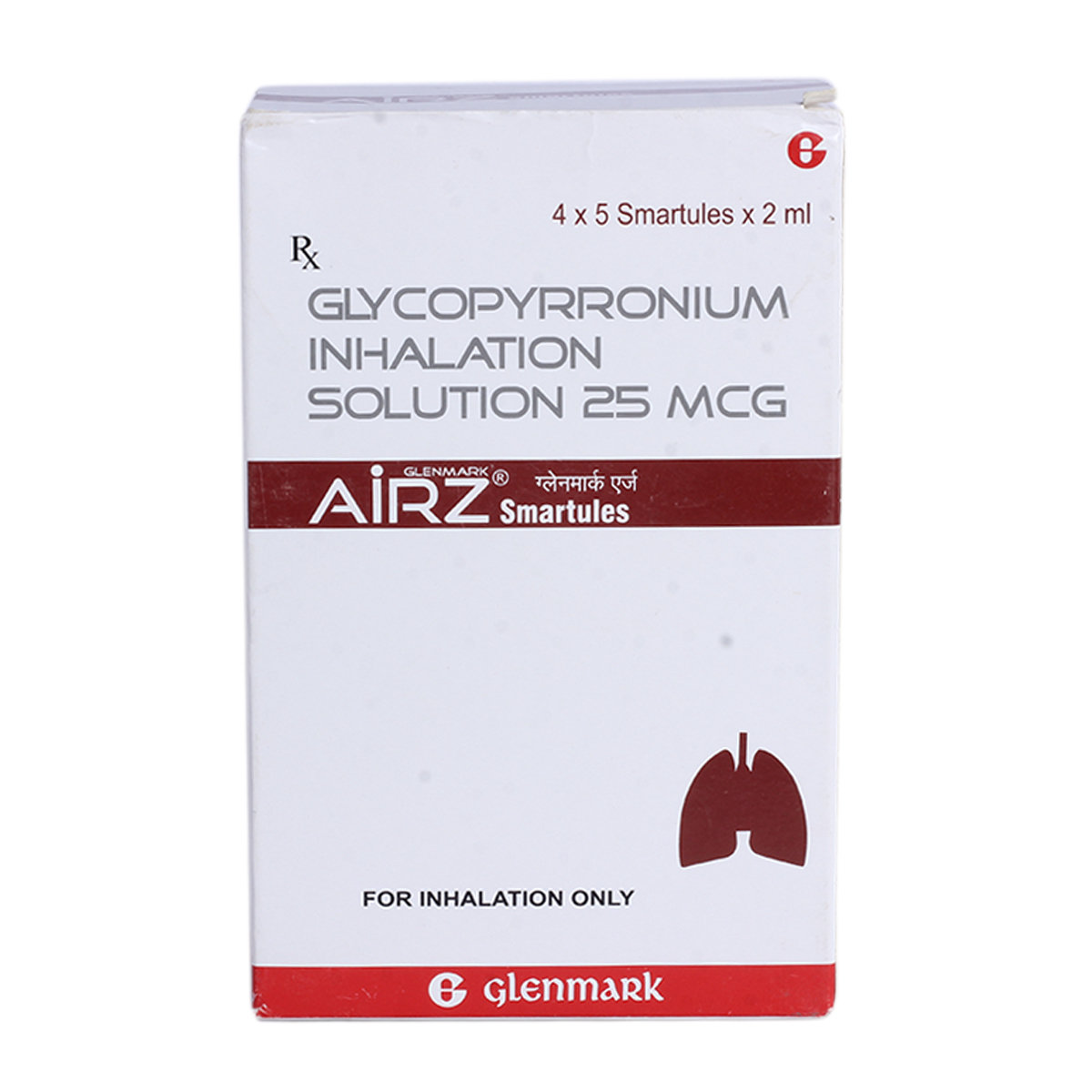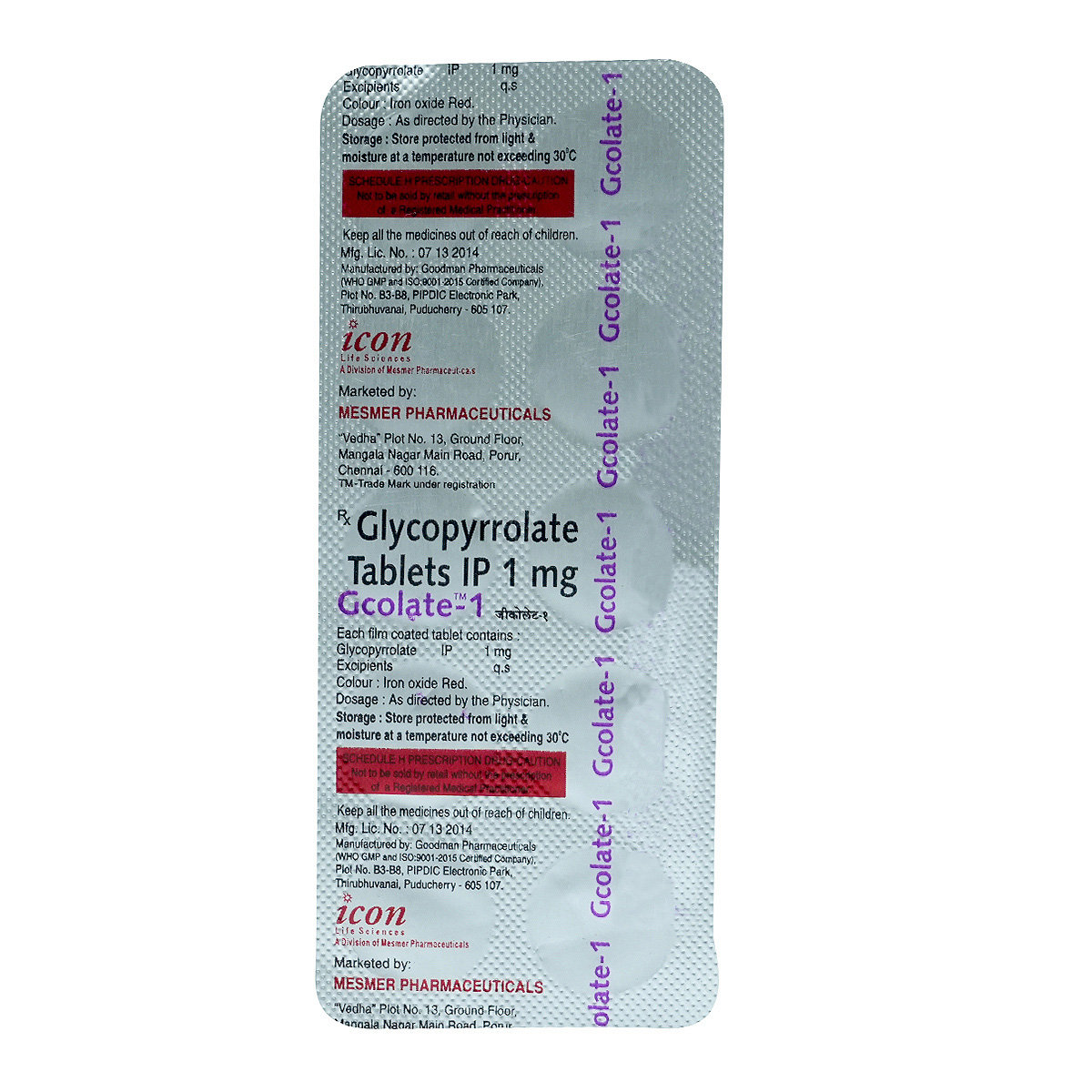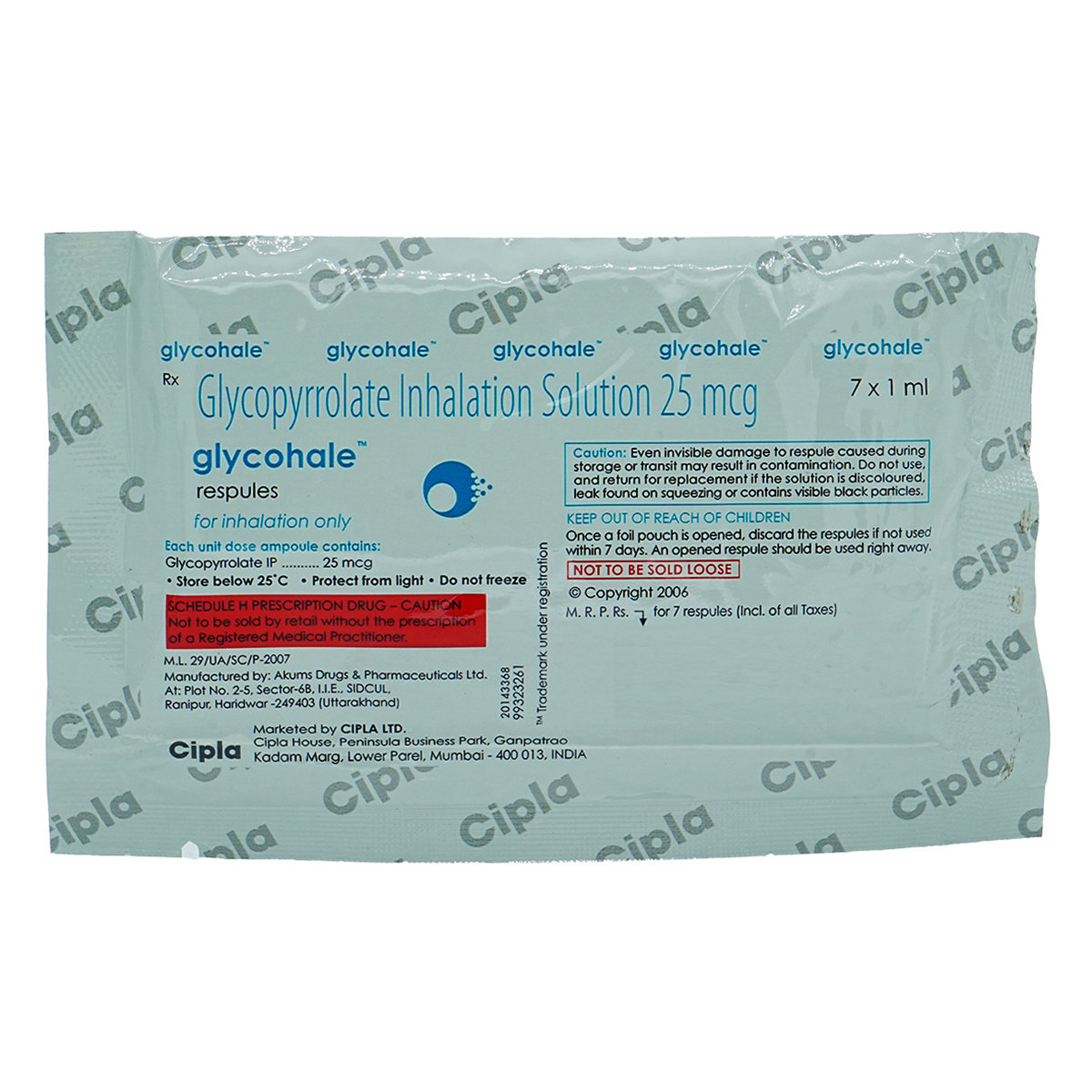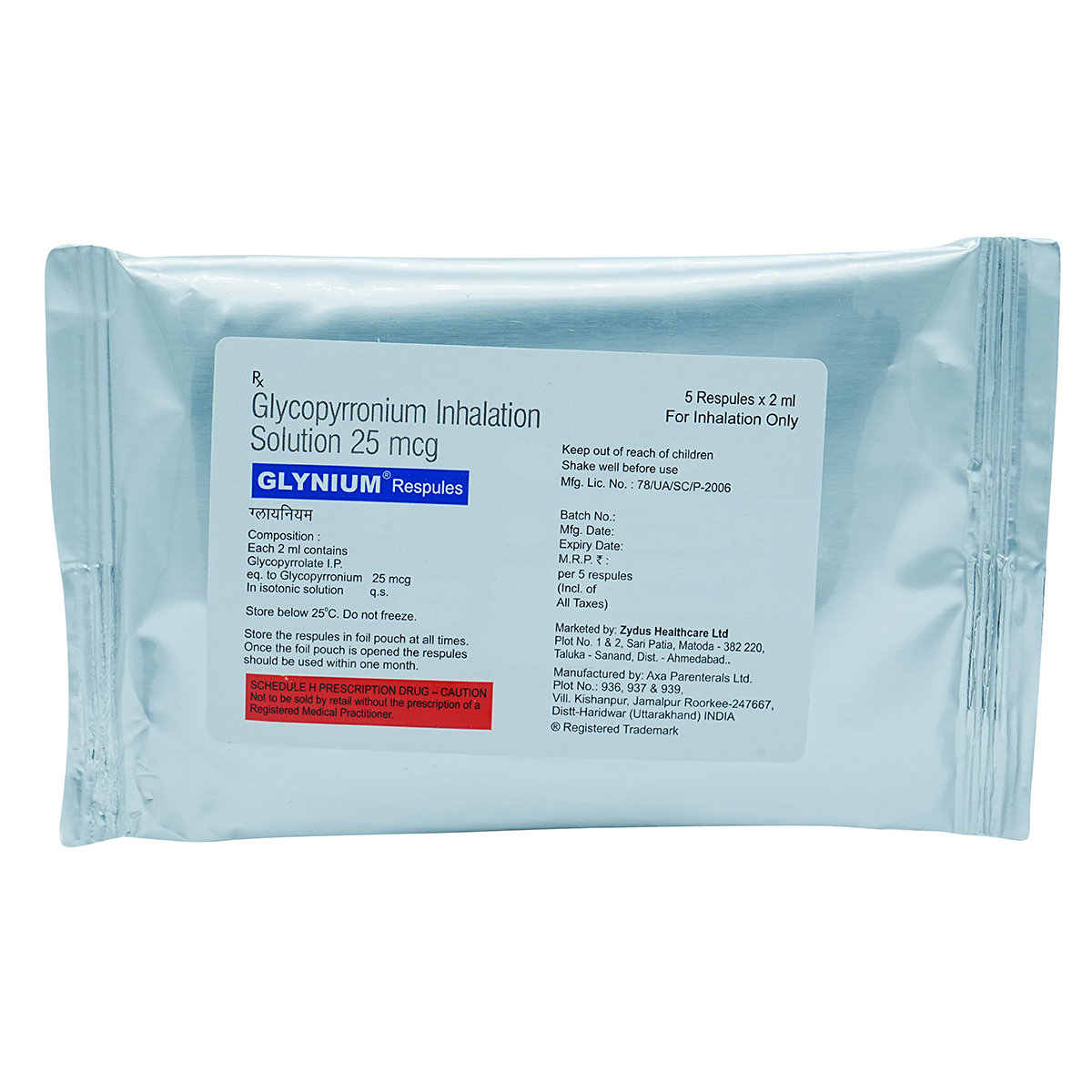Glycopyrrolate
About Glycopyrrolate
Glycopyrrolate belongs to the group of medications called ‘anticholinergics’ primarily used to treat peptic ulcers in adults and children above 12 years. It is also used to treat severe drooling caused by certain neurologic disorders (cerebral palsy) in children 3 to 16 years of age. Peptic ulcers are sores that develop on the lining of the stomach and intestine due to erosion of the stomach's protective lining.
Glycopyrrolate contains ‘Glycopyrrolate’, which decreases stomach acid and saliva production by blocking the activity of a certain natural substance in the body. Thereby helps treat peptic ulcers and drooling.
You are advised to take Glycopyrrolate for as long as your doctor has prescribed it for you, depending on your medical condition. In some cases, Glycopyrrolate may cause dry mouth, vomiting, flushing, headache, and nasal congestion. Most of these side effects of Glycopyrrolate do not require medical attention and gradually resolve over time. However, if the side effects persist or worsen, please consult your doctor.
Inform your doctor if you are allergic to any of the components in Glycopyrrolate. Consult your doctor if you are pregnant or breastfeeding. Glycopyrrolate may cause sleepiness and blurred vision, do not drive or operate machinery unless you are alert. Let your doctor know if you are taking any prescription and non-prescription medications, including vitamins and herbal supplements.
Uses of Glycopyrrolate
Medicinal Benefits
Glycopyrrolate belongs to the group of medications called ‘anticholinergics’ primarily used to treat peptic ulcers in adults and children above 12 years. It is also used to treat severe drooling caused by certain neurologic disorders (cerebral palsy) in children 3 to 16 years of age. Glycopyrrolate contains ‘Glycopyrrolate’, which decreases stomach acid and saliva production by blocking the activity of a certain natural substance in the body. Thereby helps treat peptic ulcers and drooling.
Directions for Use
Storage
Side Effects of Glycopyrrolate
- Dry mouth
- Vomiting
- Flushing
- Constipation
- Nasal congestion
Drug Warnings
If you are allergic to Glycopyrrolate or any other medicines, please tell your doctor. If you are pregnant or a breastfeeding mother, it is advised to consult a doctor before using Glycopyrrolate. Let your doctor know if you are taking any prescription and non-prescription medications, including vitamins and herbal supplements. Inform your doctor if you have autonomic neuropathy, hyperthyroidism, urination problems, a blockage in your stomach or intestines, severe constipation, ulcerative colitis, glaucoma, myasthenia gravis, bleeding problems, blood circulation problems, enlarged prostate, liver/ kidney diseases.
Drug Interactions
Drug-Drug Interaction: Glycopyrrolate may interact with other anticholinergics (atropine), cholinesterase inhibitors (neostigmine, pyridostigmine), anticonvulsants (topiramate), antihistamines (diphenhydramine).
Drug-Food Interaction: No interactions found/established.
Drug-Diseases Interaction: If you have urination problems, gastrointestinal blockage, severe constipation, ulcerative colitis, glaucoma, heart and blood circulation problems, inform your doctor before taking Glycopyrrolate.
Drug-Drug Interactions Checker List:
Safety Advice

Alcohol
cautionIt is not known if alcohol interacts with Glycopyrrolate. Please consult your doctor.

Pregnancy
cautionConsult your doctor before taking Glycopyrrolate if you are pregnant; your doctor will prescribe only if the benefits outweigh the risks.

Breast Feeding
cautionConsult your doctor before taking Glycopyrrolate if you are breastfeeding; your doctor will decide whether Glycopyrrolate can be taken by breastfeeding mothers or not.

Driving
cautionGlycopyrrolate may cause sleepiness and blurred vision. Do not drive or operate machinery unless you are alert.

Liver
cautionIf you have liver problems, please inform your doctor before taking this medicine.

Kidney
cautionIf you have kidney problems, please inform your doctor before taking this medicine.

Children
cautionTablet: It is not recommended for children as safety and effectiveness have not been established. Oral solution: It can be given to children above 3 years if prescribed by a doctor. The safety and effectiveness have not been established in children below 3 years.
Habit Forming
Diet & Lifestyle Advise
Peptic ulcers:
- Eat smaller meals more often.
- Avoid smoking and alcohol consumption.
- Maintain a healthy weight by regular exercising.
- Avoid lying down after eating to prevent acid reflux.
- Avoid tight-fitting clothes as it might increase the pressure on the abdomen leading to acid reflux.
- Practice relaxation techniques and avoid stress by doing yoga or meditation.
- Avoid foods such as high-fat food, spicy food, chocolates, citrus fruits, pineapple, tomato, onion, garlic, tea, and soda.
- Avoid sitting continuously as it may trigger acidity. Take a break of 5minutes break every hour by doing brisk walking or stretching.
Patients Concern
Disease/Condition Glossary
Peptic ulcers: Peptic ulcers are sores that develop on the lining of the stomach and intestine due to erosion of the stomach's protective lining. Symptoms include nausea, changes in appetite, bloody or dark stools, unexplained weight loss, vomiting, and indigestion.
FAQs
Glycopyrrolate decreases stomach acid and saliva production by blocking the activity of a certain natural substance in the body.
Dry mouth could be a side effect of Glycopyrrolate. Limiting caffeine intake, avoiding smoking, and drinking water regularly, chewing sugar-free gum/candy might stimulate saliva, thereby preventing drying of the mouth.
Do not stop taking Glycopyrrolate on your own. You are advised to take Glycopyrrolate for as long as your doctor has prescribed it for you, depending on your medical condition. Do not be hesitant to speak with your doctor if you experience any difficulty while taking Glycopyrrolate.
Glycopyrrolate may cause your child to sweat less, leading to overheating and heat stroke. Avoid doing things that may cause you to overheat, such as exercising. Consult your doctor if you notice hot, red skin, fast, weak pulse, fast, shallow breathing, fever, or decreased alertness.
Glycopyrrolate may cause constipation. Eat fibre rich diet and drink plenty of water.

